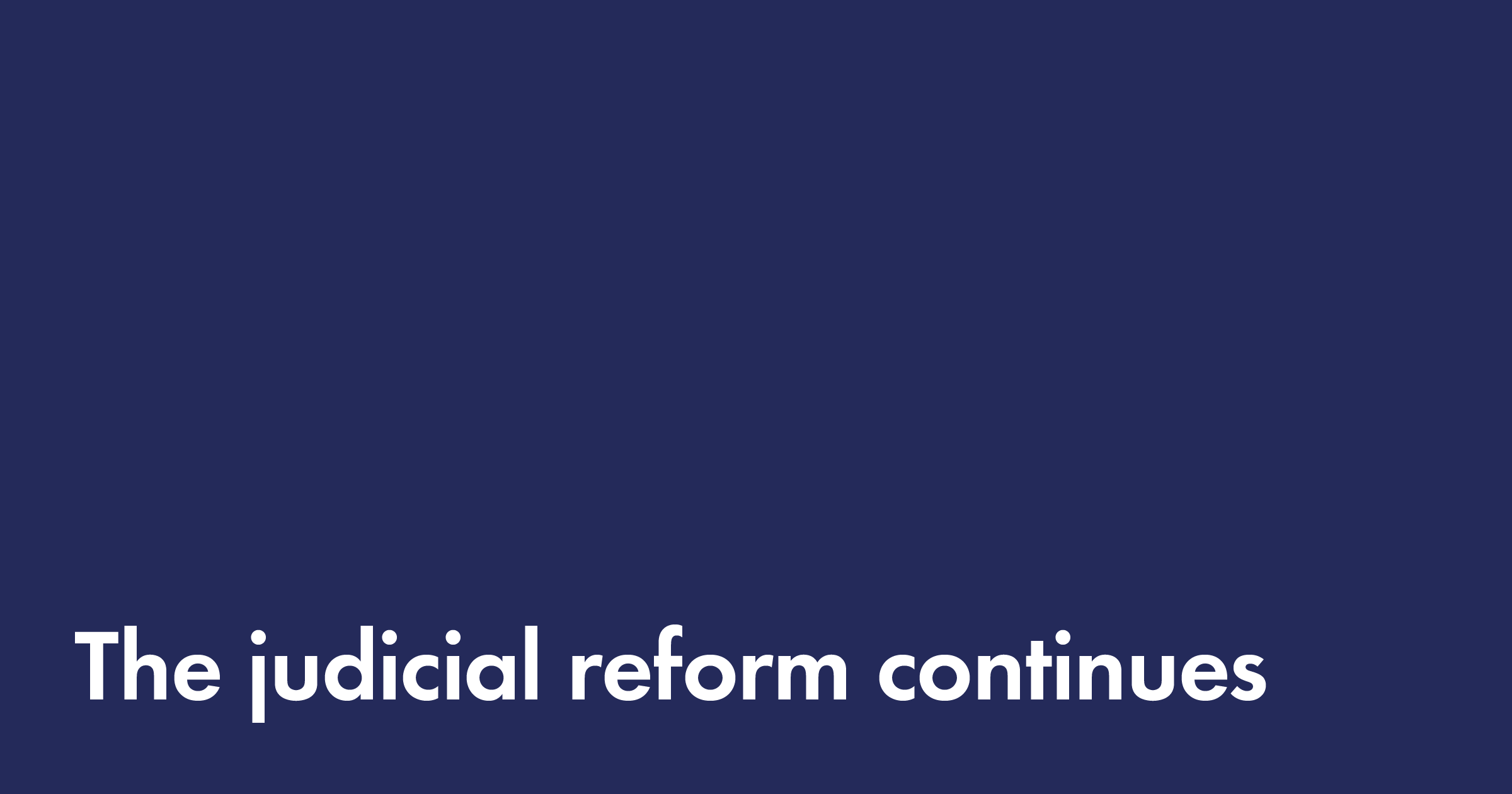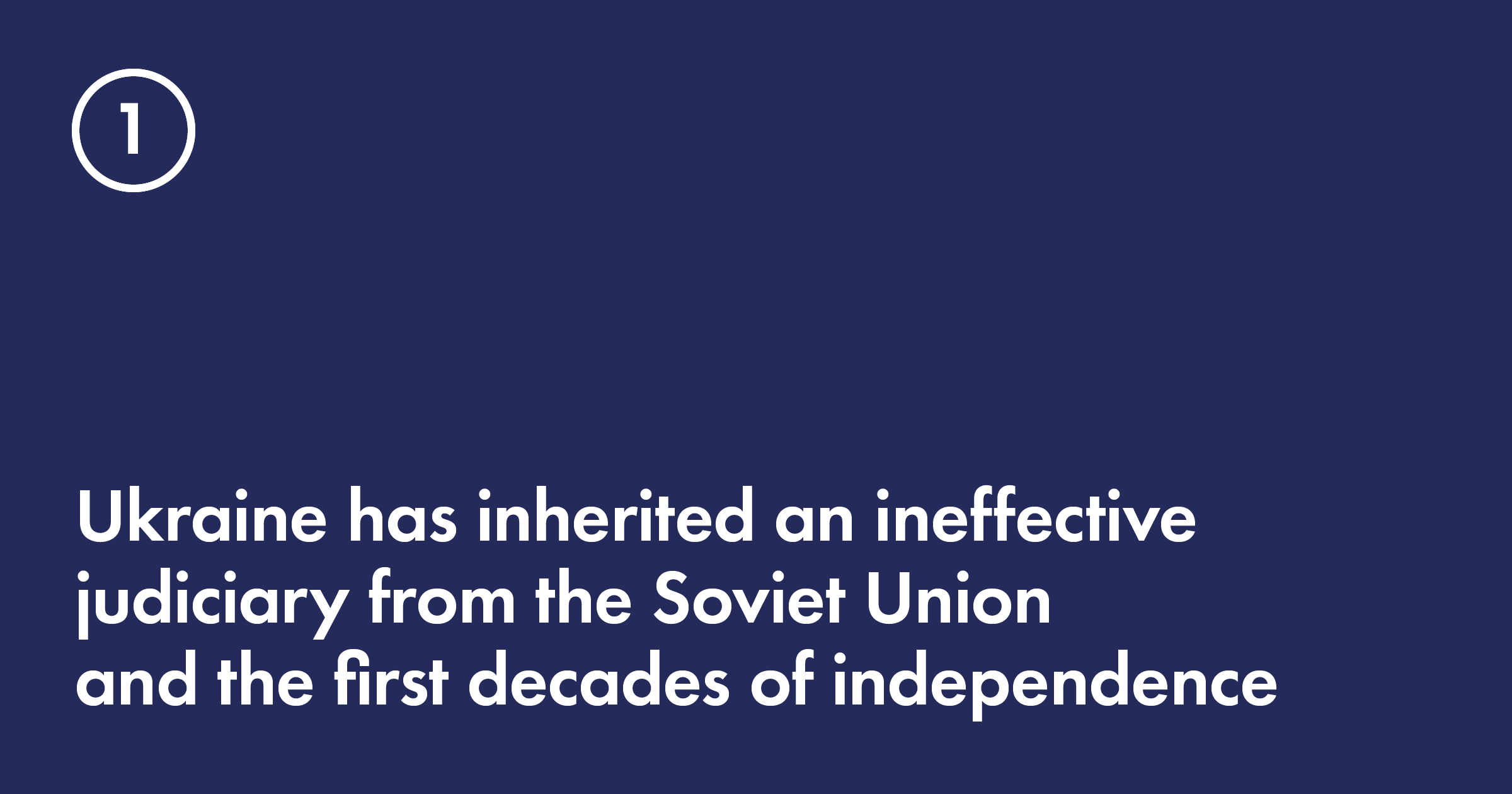
During Soviet times, courts were an element of the state punitive system, effectively subordinated to government agencies and the Communist party structures. Presumption of innocence and other key rights and freedoms were there mostly for mere appearance.
After Ukraine had regained its independence, the “Soviet” problems of the judiciary were compounded by new challenges. Courts have turned into cesspools of corruption. This trend peaked during the Yanukovych presidency. The law became devalued, and the public’s view of judges turned extremely negative, creating an image that will take years to mend.
Establishing the rule of law is one of the most important challenges. It would be no exaggeration to say that this is something that will determine whether Ukrainian citizens will be able to enjoy a decent standard of living and whether the country will be able to develop further. Our common goal is to bring the system of justice in Ukraine in line with European standards, safeguarding the rule of law.
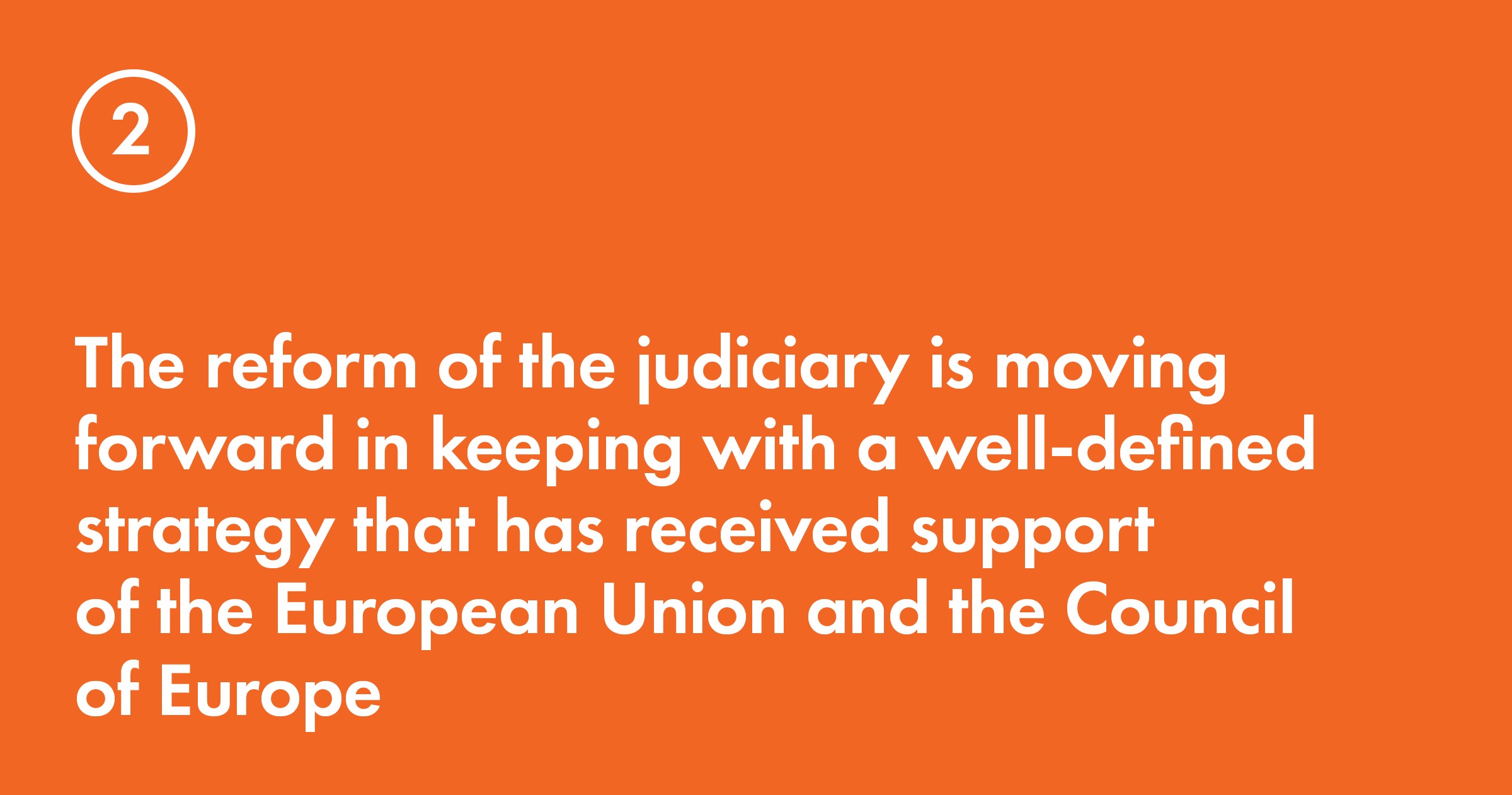
This strategy, developed by the Judicial Reform Council and approved by a Decree of the President of Ukraine, lays out the steps that are necessary to create a modern European system of justice in Ukraine. International experts, practicing lawyers, legal scholars, members of parliament, representatives of the civil society as well as judges all collaborated in crafting the document.
The Judicial Reform Council has “developed the Strategy for reforming of the judiciary, the system of justice, and ancillary legal institutions for 2015-2020, and with that—a straightforward action plan for the implementation of the reform. Moreover, the Council meets every year to approve a yearly plan that goes into more details on specific procedural matters. The level of organization of the reforms in the justice sector is really impressive,” says Dovydas Vitkauskas, team leader of the EU project “Support to Justice Sector Reforms in Ukraine (PRAVO)”.
The strategy sets out three reform components:
- Bringing Ukrainian legislation in line with European standards.
- Creating new judicial institutions and revamping the existing ones.
- Rebooting the judges corps.
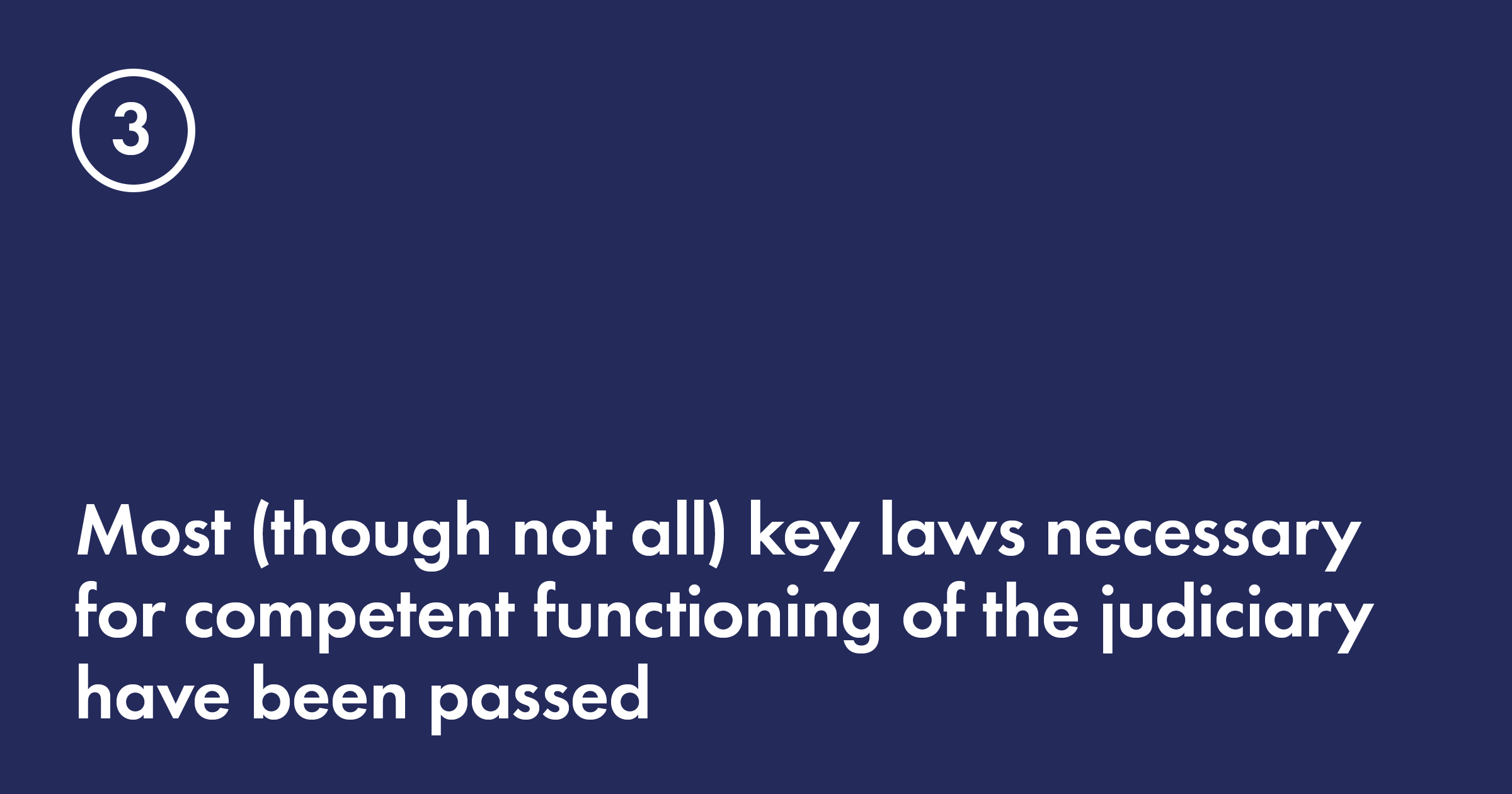
The legislative component of the reform is nearing completion. In all, 10 fundamental laws were adopted since 2014, bringing Ukraine’s justice system in line with European standards.
Amendments to the Constitution and new legislation pertaining to the setup of the court system created the foundation for independent and responsible functioning of Ukrainian courts. A refresh of procedural law is supposed to make legal proceedings more efficient and less time-consuming.
New legislation on the court system provides for performance evaluation of every sitting judge according to the criteria of competence, integrity, and ethics. It also created the basis for a transparent selection process of new judges.
This legislation has been developed in cooperation with European experts and has received high marks:
“The adoption in the final reading of constitutional amendments related to the judiciary by the Verkhovna Rada in Ukraine is a crucial step towards strengthening the judiciary, improving its efficiency, safeguarding its independence and impartiality, and combating corruption,” according to the joint statement of High Representative of the European Union for Foreign Affairs and Security Policy Federica Mogherini and European Commissioner for European Neighbourhood Policy and Enlargement Negotiations Johannes Hahn.
Regis Brillat, Special Advisor to the Council of Europe’s Secretary General for Ukraine, who is also a member of the Judicial Reform Council, said, “After the Revolution of Dignity, we are seeing significant changes in Ukraine’s judiciary. This includes amendments to the Constitution, passing the law ‘On the Judiciary and Status of Judges,’ passing amendments to core procedural legislation <…>. What we’ve seen happening is an example of how changes get implemented when there is requisite political will.”
As of the beginning of 2019, the only two bills which have not yet been passed are the law “On the Bar” and the law “On Law Education.”
The draft law “On the Bar” has been cleared with international experts who have submitted a positive opinion on the bill, and is currently under consideration by the Verkhovna Rada of Ukraine.
“The reform of the judiciary is not complete without the long-awaited law on reforming the bar. <…> This bill is a step forward compared to the current law on the bar that was adopted in 2012. And I call on Ukrainian leadership to stay committed to this reform,” said the OSCE Secretary General Thomas Greminger.
The bill on law education is currently being developed by a working group on the basis of an already approved concept.
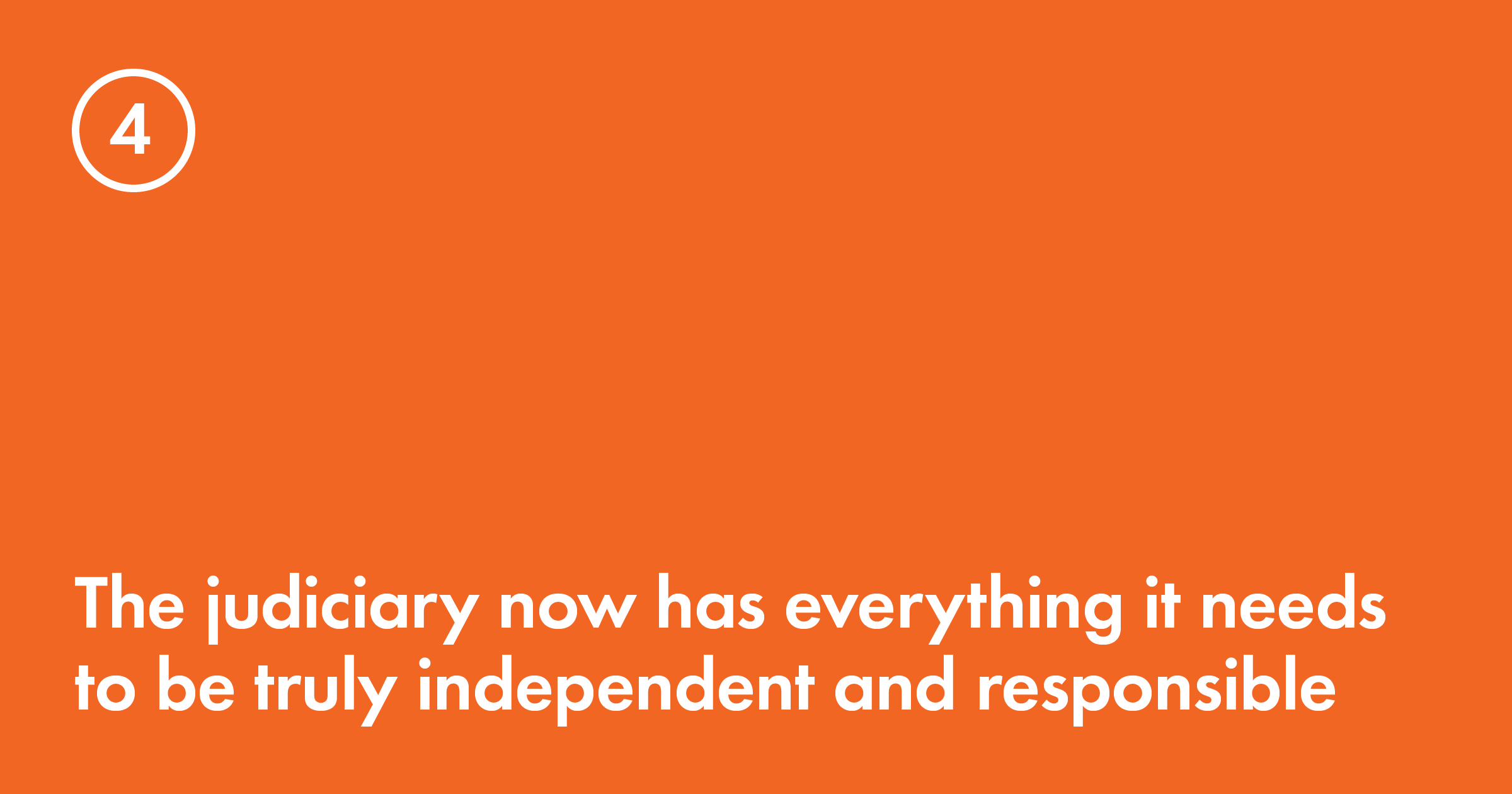
Compared to the first 23 years of independence, Ukraine now has a truly independent judiciary, updated laws on the court system, high compensation for judges, and a new level of responsibility and accountability of judges.
The new legislation has removed the possibility for political institutions to influence appointment and dismissal of judges, introduced methods of protecting judges’ independence, and raised both qualification requirements for judges and their compensation levels.
On the other hand, the judicial discipline system has also been enhanced. For the first time ever, inability to provide proof of legality of income is constitutional grounds for removing a judge from office. A new system of sanctions makes it possible to handle cases of judicial misconduct properly.
“Some serious levers that allow thwarting corruption-based decisions have been put in place. There is no longer just one person or organization that makes a decision to appoint a judge. The process has become more complicated. It is spearheaded by the High Qualification Commission of Judges that is composed of 16 people. They are assisted by the Public Integrity Council <…>. Law enforcement agencies and tax administration representatives are also involved in the process of selecting judges. Besides, the High Qualification Commission can only recommend a candidate based on the results of an evaluation. After that, the candidates are vetted by the High Council of Justice, and only after that the President signs the decree appointing the new judge,” says Dovydas Vitkauskas, team leader of the EU Project “Pravo-Justice” (“Support to Justice Sector Reforms in Ukraine”).
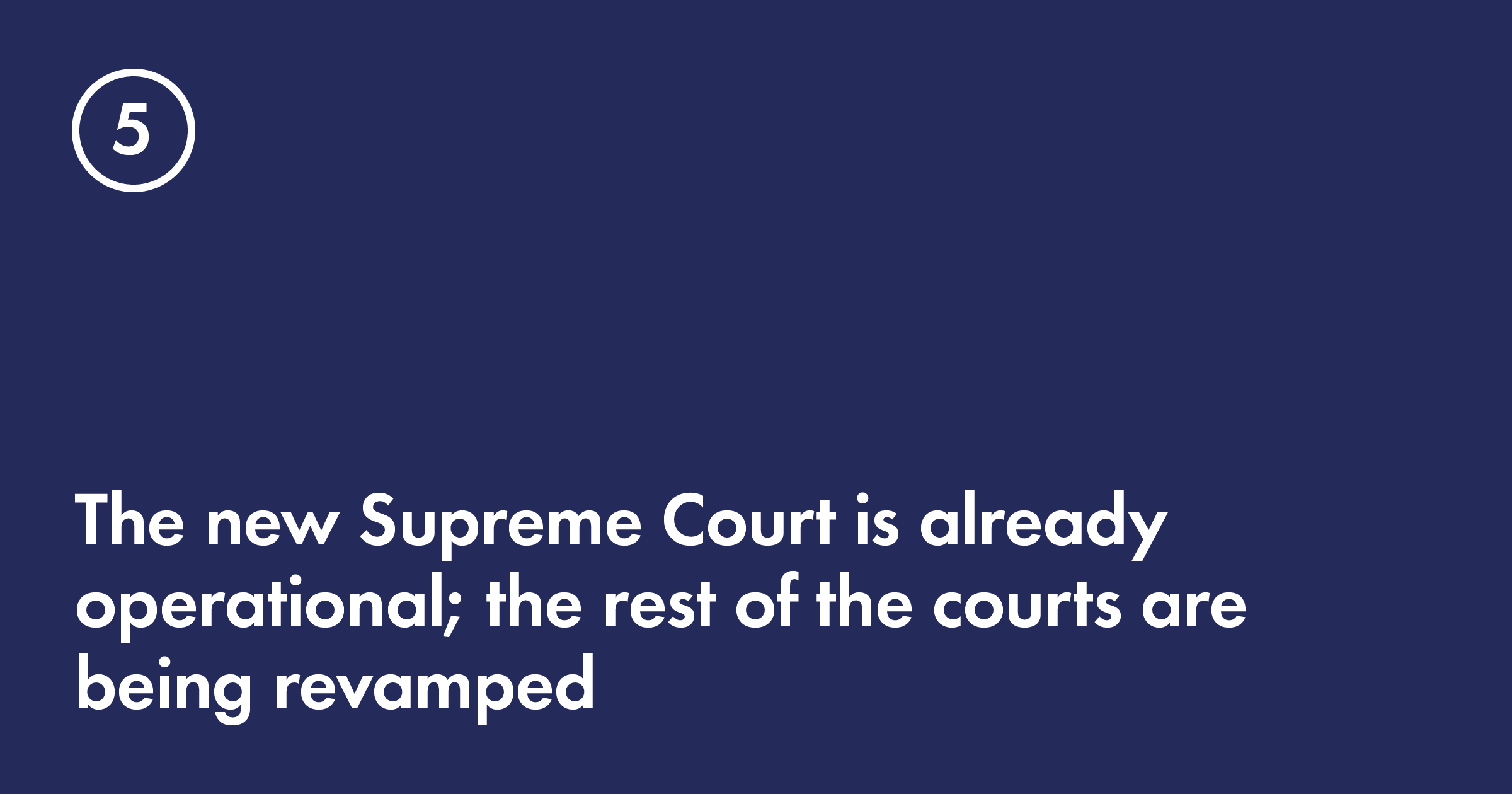
As of April 2019, the higher appellate level of the court system has been successfully overhauled. The new Supreme Court—the highest court in the Ukrainian justice system that is entrusted with ensuring consistent application of laws by lower courts—has thus been successfully created. The reorganization of regular appellate courts is partially completed, and the overhaul of the lower courts is already under way.
The new Supreme Court of Ukraine started work on December 15, 2017. From 1436 applicants who took part in the transparent selection process (the first one in Ukraine’s history), 118 new justices were selected. They included not only those who already were judges at the time, but also former attorneys and legal scholars. The position of the Head of the Supreme Court went to Valentyna Danishevska. The Supreme Court is the institution that ensures correct and consistent application of laws by all courts.
The quality of the selection process to fill positions at the Supreme Court was confirmed by positive appraisals on the part of European experts who have noted that “the methodology for assessment of the judicial candidates <…> is comprehensive and provides for an objective process of selection [and] a very good basis for transparent and fair selection of the candidates,” which is important due to “the high public interest and the significance of the process.”
The High Qualification Commission of Judges conducts performance reviews of judges, assessing their competence, integrity, and ethics. It also administers selection procedures to fill vacancies in district courts and appellate courts. Starting from 2014, almost 30% of the overall number of judges have resigned without waiting for a performance review. Performance reviews of sitting judges led to a further 20% of them being dismissed on having voluntarily resigned. The positions which have thus opened can be filled not only by judges who successfully passed the performance review, but also by practicing attorneys and legal scholars who meet professional and ethical requirements.
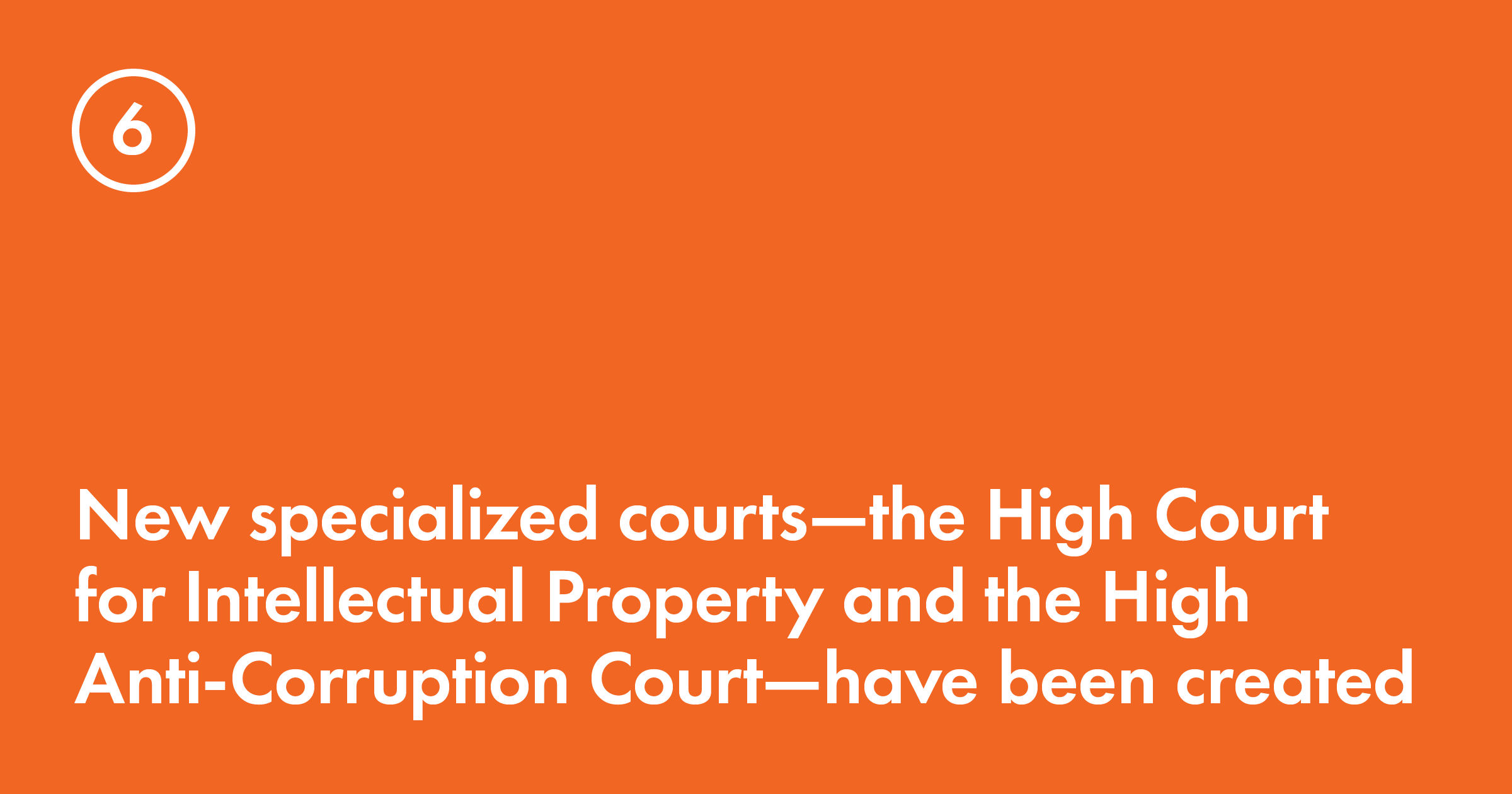
The High Court for Intellectual Property will hear disputes over rights to inventions, utility models, industrial designs, trademarks, trade names, and copyright. Setting up this court was critical for bolstering Ukraine’s investment climate. Around 90 countries around the world have successful experience of resolving disputes pertaining to intellectual property in specialized courts. Selection of candidates to fill vacancies in this court is currently under way.
The High Anti-Corruption Court will hear criminal cases involving elements of corruption. The selection process for filling 39 seats in the High Anti-Corruption Court has been conducted with participation of the Public Council of International Experts (that included highly qualified experts from the UK, Canada, Denmark, Lithuania, and Macedonia) and has received high marks from international partners and donors. On April 11, 2019, President of Ukraine Petro Poroshenko has signed a decree formally appointing 38 justices of the High Anti-Corruption Court.
“What we have achieved together with the High Qualification Commission of Judges as we were selecting judges for the Anti-Corruption Court is incredible. Ukraine has created unique procedures for appointment of judges and can be proud of it. It is the first country in the world to invite international experts to participate in the selection procedures. We couldn’t have had better support than we had from the Qualification Commission in this process,” said the Chairman of the Public Council of International Experts, Sir Anthony Hooper.
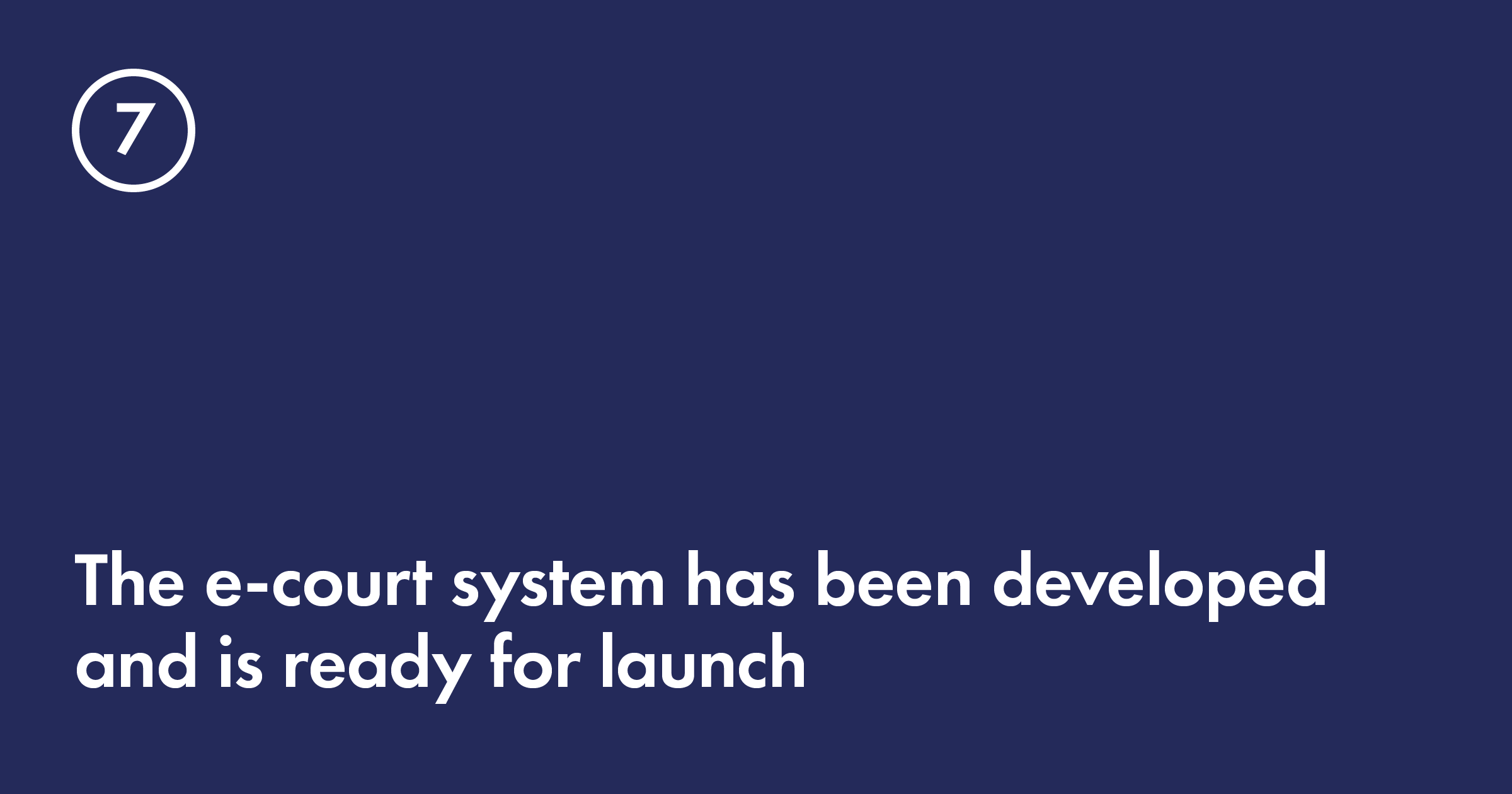
The newly adopted Procedural Codes provided for the creation of the e-court—a system that allows people to make use of a range of court services right from their smartphone or computer. Thanks to this, navigating the court system will become much more convenient.
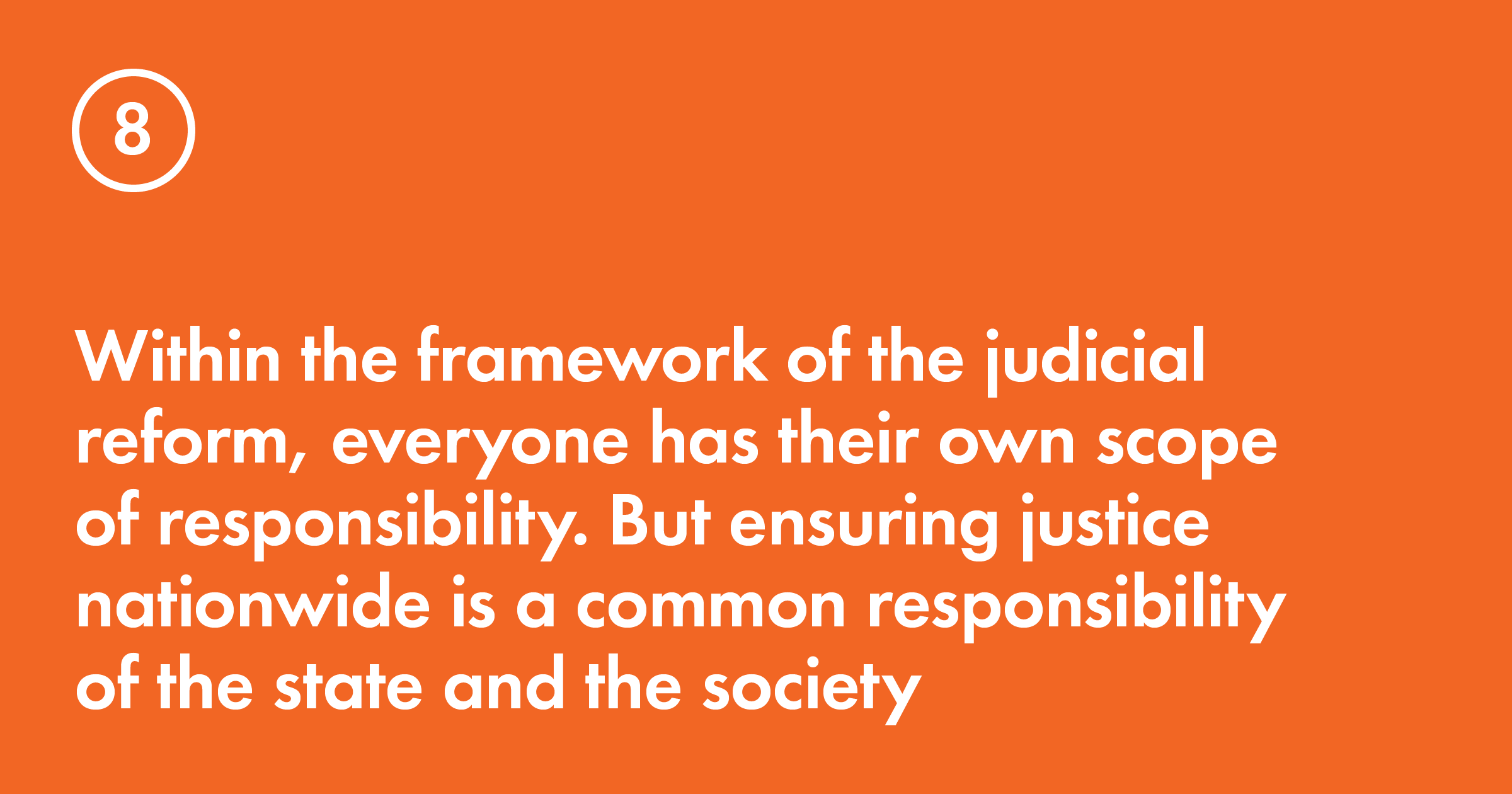
The society’s attitude toward judicial reform depends on our expectations and our understanding of the roles of various actors. The courts are supposed to uphold the rule of law as embodied in current legislation, the bar is supposed to provide effective defense and legal representation, the prosecution is supposed to present criminal charges in court in a professional and objective manner, investigative agencies are supposed to gather evidence pertaining to the circumstances in the case and the defendant’s guilt, while enforcement officers are supposed to make sure court decisions are actually enforced.
The role of the Judicial Reform Council is to develop and coordinate the strategy and legislative basis for revamping the court system—which was successfully accomplished over the 4 years of the Council’s work.
The President submits bills for consideration by the Verkhovna Rada, and the Rada passes these bills and shapes their final content. The powers of the Rada, the Cabinet of Ministers, and the President also include creating new institutions—courts, judicial governance bodies (the High Council of Justice, the High Qualification Commission of Judges, and the State Administration of the Judiciary).
The High Council of Justice and the High Qualification Commission of Judges are responsible for staffing courts with competent judges, conducting selection procedures and performance reviews.
Specialized anti-corruption agencies—the National Anti-Corruption Bureau of Ukraine, the Specialized Anti-Corruption Prosecutor’s Office, and the National Agency on Corruption Prevention are responsible for exposing and preventing corruption within the judiciary.
Just as important is the role of citizens, who are supposed to use their rights and freedoms responsibly and to know and obey the law in everyday life. In the words of Gianni Buquicchio, President of the Venice Commission, “It is hard to make a revolution in legislation. In the two years that the judicial reform has been in progress, you have managed to take a huge step forward. <…> The legislative basis for change has been created, but in order for the Ukrainian society to get what it deserves, you need to see changes in the mindset of both the public and the judges.”
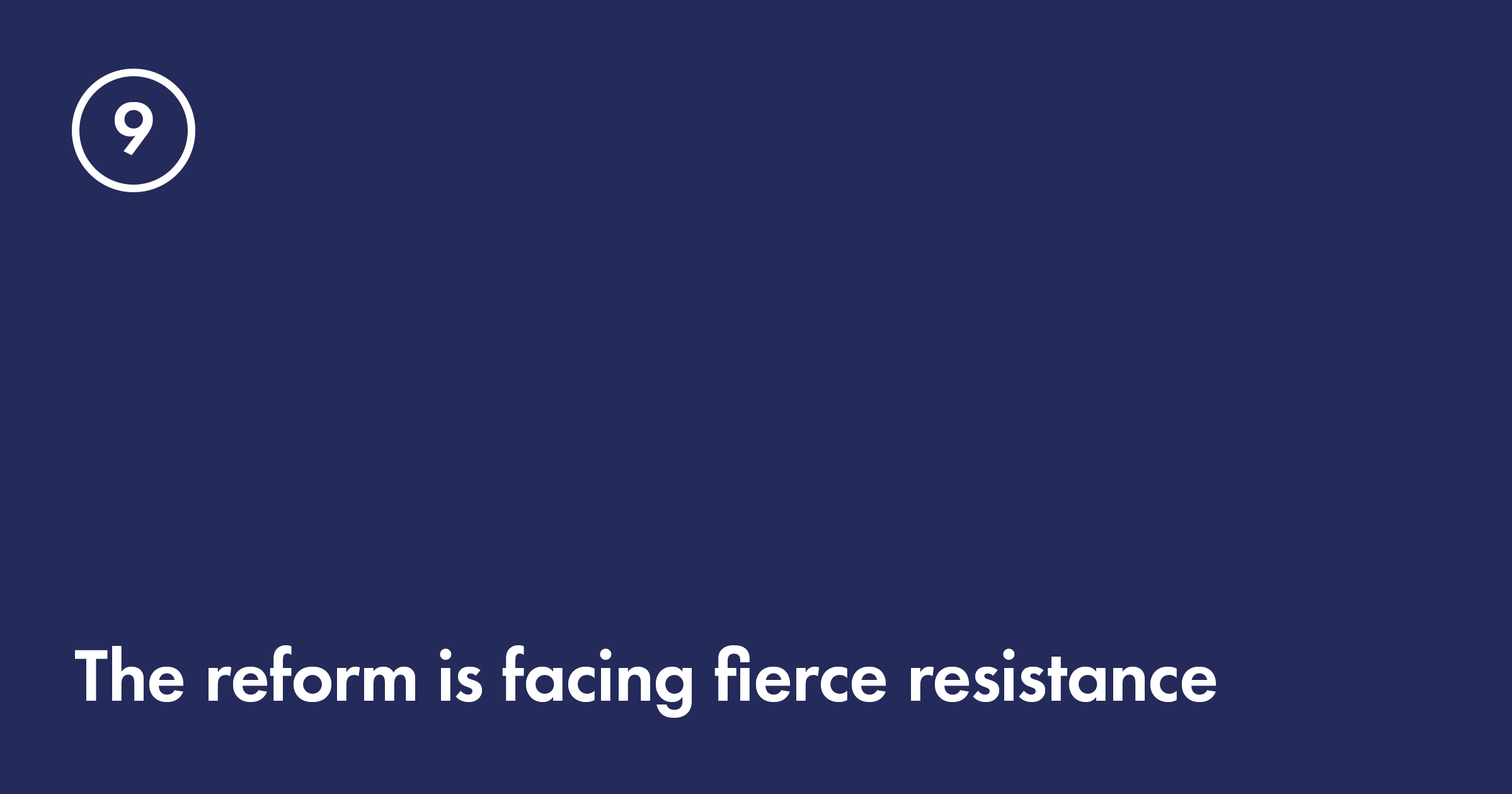
The bills that are necessary to move the reform forward are facing obstruction in the parliament despite the positive assessment and support given to these bills by the Council of Europe, the Venice Commission, and other respected European institutions.
The forces that have a vested interest in retaining political and commercial influence over the courts are waging an active campaign to block the reform from happening. The judiciary itself, although it has seen an influx of honest judges, is not yet completely free from groups that are bent on keeping corrupt schemes in place.
In order to overcome these obstacles, there is a need for a critical mass of responsible professionals not just in the judiciary but also in the parliament, the prosecutorial system, the bar community and the academic legal community. Of great significance to a systemic shift in the judiciary is also the matter of legal education.
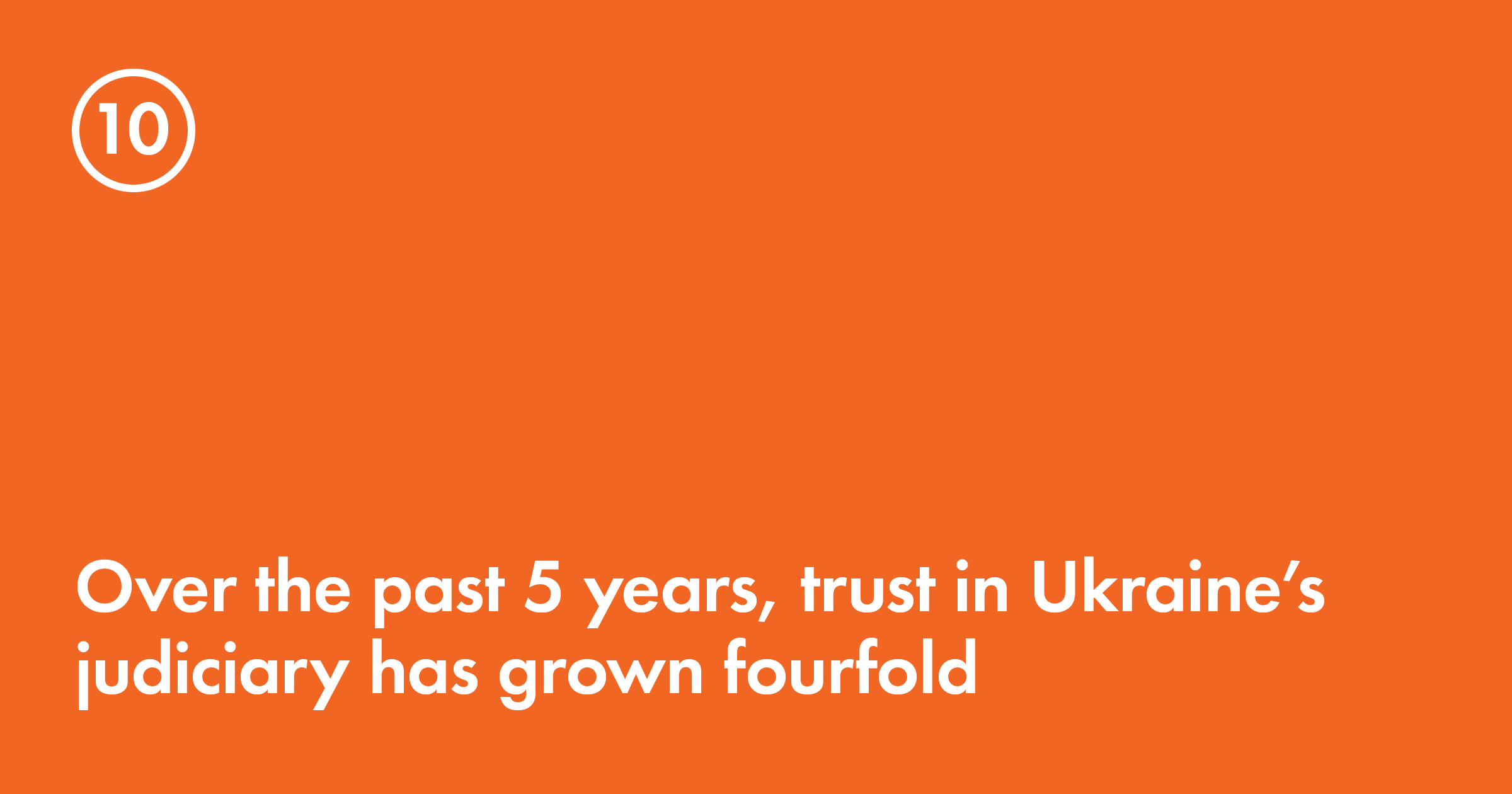
International experts have praised the steps taken by Ukraine on the path of reforming its judiciary. “Such an approach, it its scope and extent, has not yet been applied across the entire public sector, not to mention the judiciary, in the majority of jurisdictions. In Ukraine, full-scale psychological testing of judges and candidates has been introduced, during which the general knowledge and skills (IQ), ethics and integrity <…> and other social and other abilities are tested,” according to a report of the experts of the EU Project “Pravo-Justice.”
“The Ukrainian society has chosen a Ukraine that is guided by the rule of law. The Ukrainian society has chosen to reform its judiciary and make it a starting point of real progress to be achieved in the nearest future. It was not easy. But it was done. Amendments to the Constitution have been passed. For the first time ever, this process happened without political influence either on the part of the President, or on the part of the Verkhovna Rada. I would compare this to the Copernicus Revolution,” was how Gianni Buquicchio, President of the Venice Commission, characterized the judicial reform.
The Ukrainian legal community also views the reform overwhelmingly positively. According to a USAID survey, around 70% of legal professionals think that the reform has had a positive influence on the independence of courts, the stability of Ukraine’s judiciary, and the level of trust vested in the judiciary by Ukrainian citizens. The survey also shows that while in 2015 only 5% of the population trusted the corts, even the first steps of the judicial reform have ameliorated the situation, as currently almost 20% of Ukrainians give positive marks to what has already been achieved by the changes that have been implemented. But the ultimate success of the judicial reform and the resurgence of the citizens’ trust depends on how fast the system will be populated by competent and honest people for whom the rule of law will be the unconditional professional priority.
